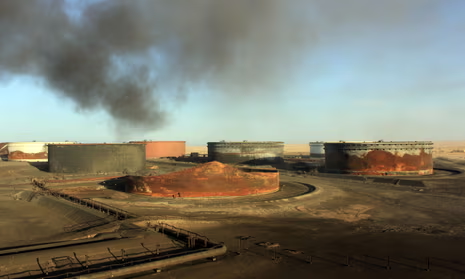
The Libyan National Oil Company (NOC) issued a stark warning on Wednesday amid a troubling wave of sabotage attacks targeting critical oil infrastructure in the country’s eastern Oil Crescent region.
Since the start of July, four coordinated assaults have damaged pipelines linking the Sarir, Zueitina, and Ras Lanouf fields, causing a daily loss exceeding 180,000 barrels of oil.
These disruptions threaten not only Libya’s energy sector stability but also the broader national recovery and regional security, NOC Chairman Farhat Ben Gdara told a press conference in Tripoli.
“These criminal acts threaten the stability of our energy sector, sabotage national recovery efforts, and jeopardize regional security,” Ben Gdara said, calling on eastern military authorities to bolster protection around oil facilities and demanding an independent investigation into the attacks.
The attacks involved homemade explosives and coordinated gunfire and are suspected to have been orchestrated by unidentified armed groups operating between Ajdabiya and Ben Jawad.
No group has yet claimed responsibility, but suspicions center on local militias embroiled in ongoing conflicts with authorities in Tobruk, amid disputes over the distribution of Libya’s crucial oil revenues.
The Oil Crescent—a 300-kilometre stretch between Ras Lanuf and Sidra—houses Libya’s primary crude export terminals and has historically been a flashpoint for violent clashes, notably in 2018 and 2020.
Given that oil generates roughly 95% of Libya’s export income, the region’s security is vital to the nation’s economy.
In a unified condemnation, UNSMIL, the African Union, and the European Union called for safeguarding the neutrality of Libya’s energy sector. They emphasized that oil infrastructure is protected under international law and constitutes a national heritage.
As a precautionary measure, NOC has shut down two pumping stations and curtailed crude flows to the Ras Lanouf and Es Sider terminals, with forecasts warning of a 12% drop in exports this month.
This surge in violence unfolds amid sensitive negotiations in Geneva over oil revenue sharing, underscoring the fragility of Libya’s path to political stability and economic recovery.



